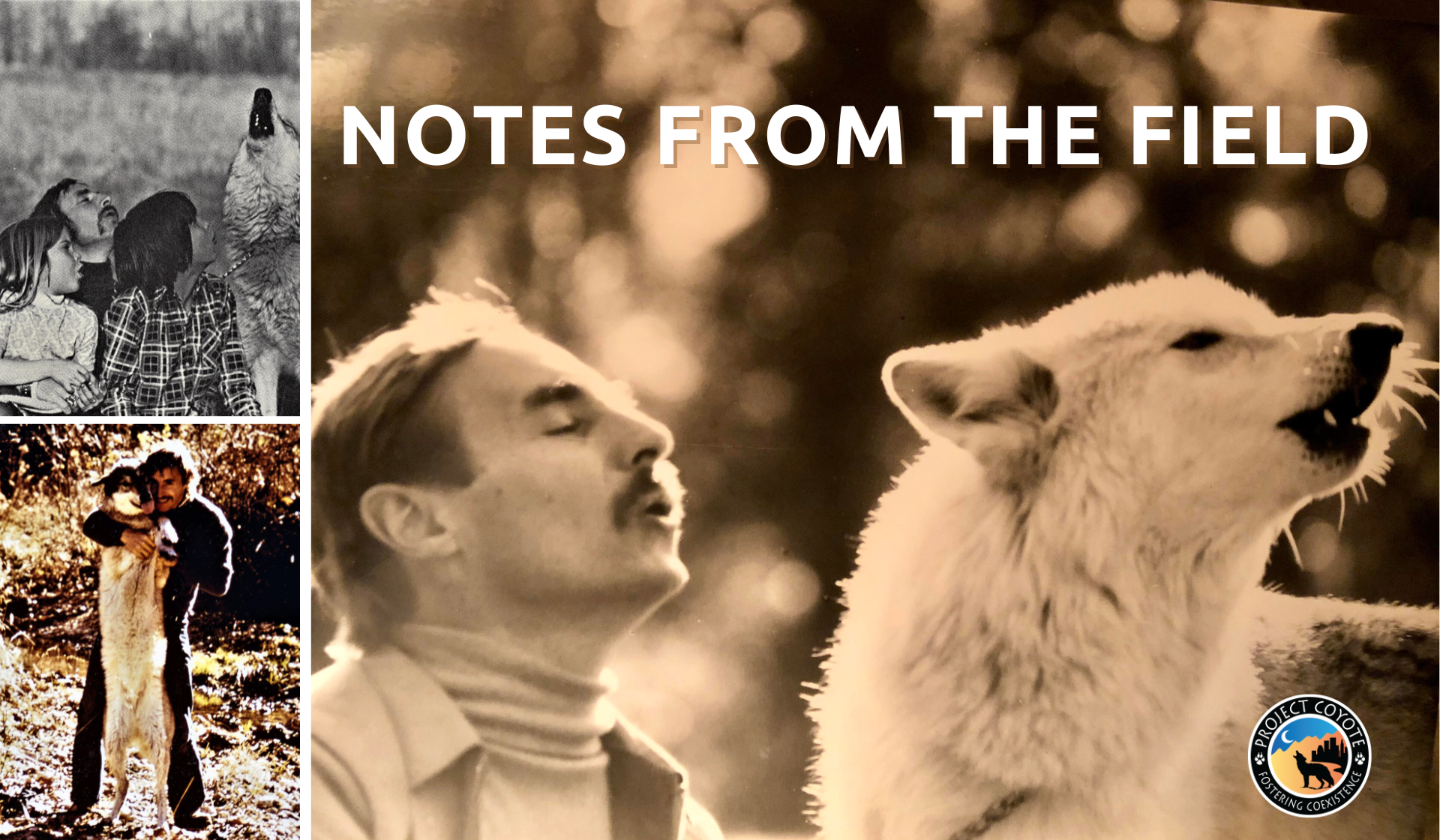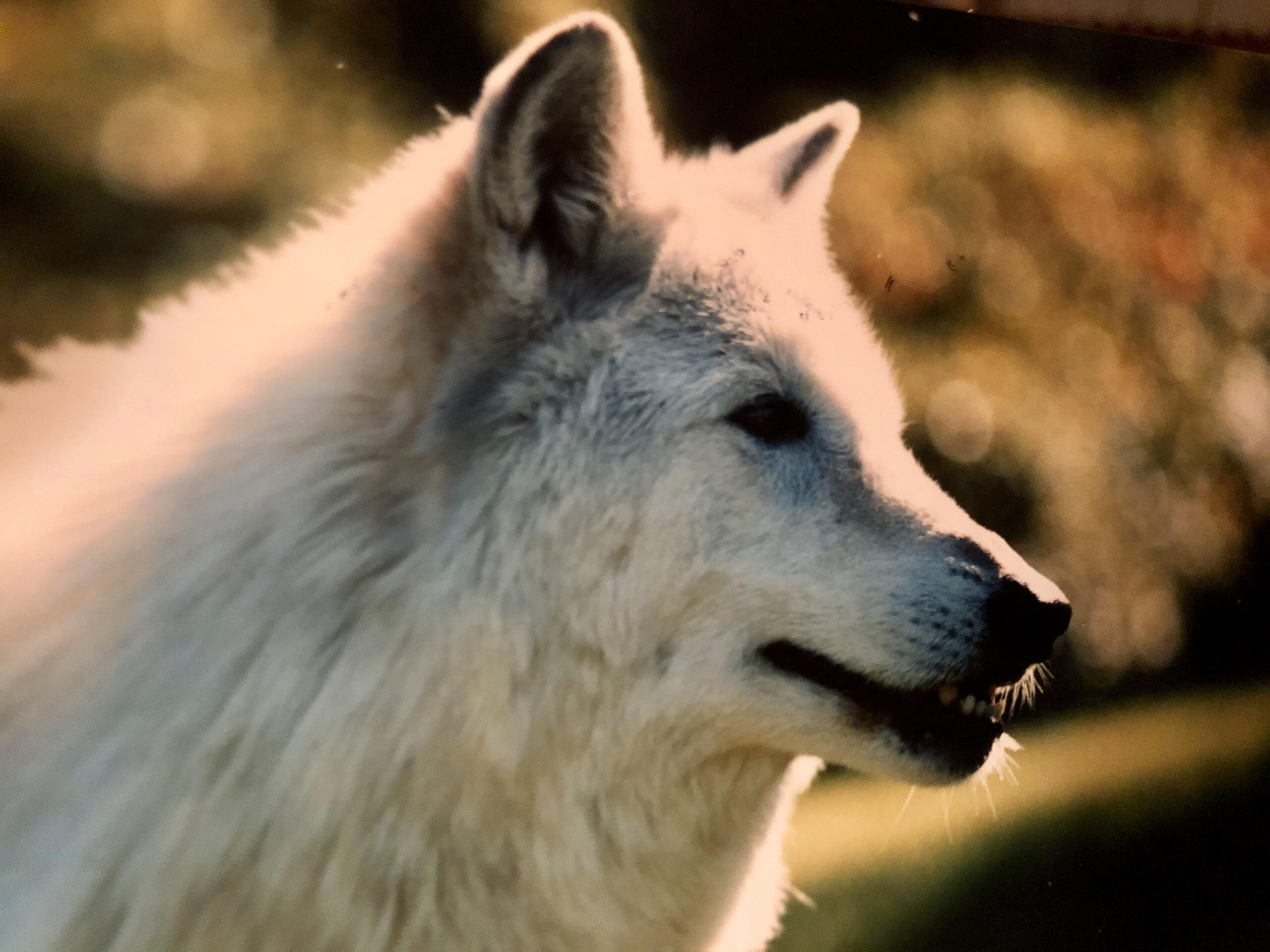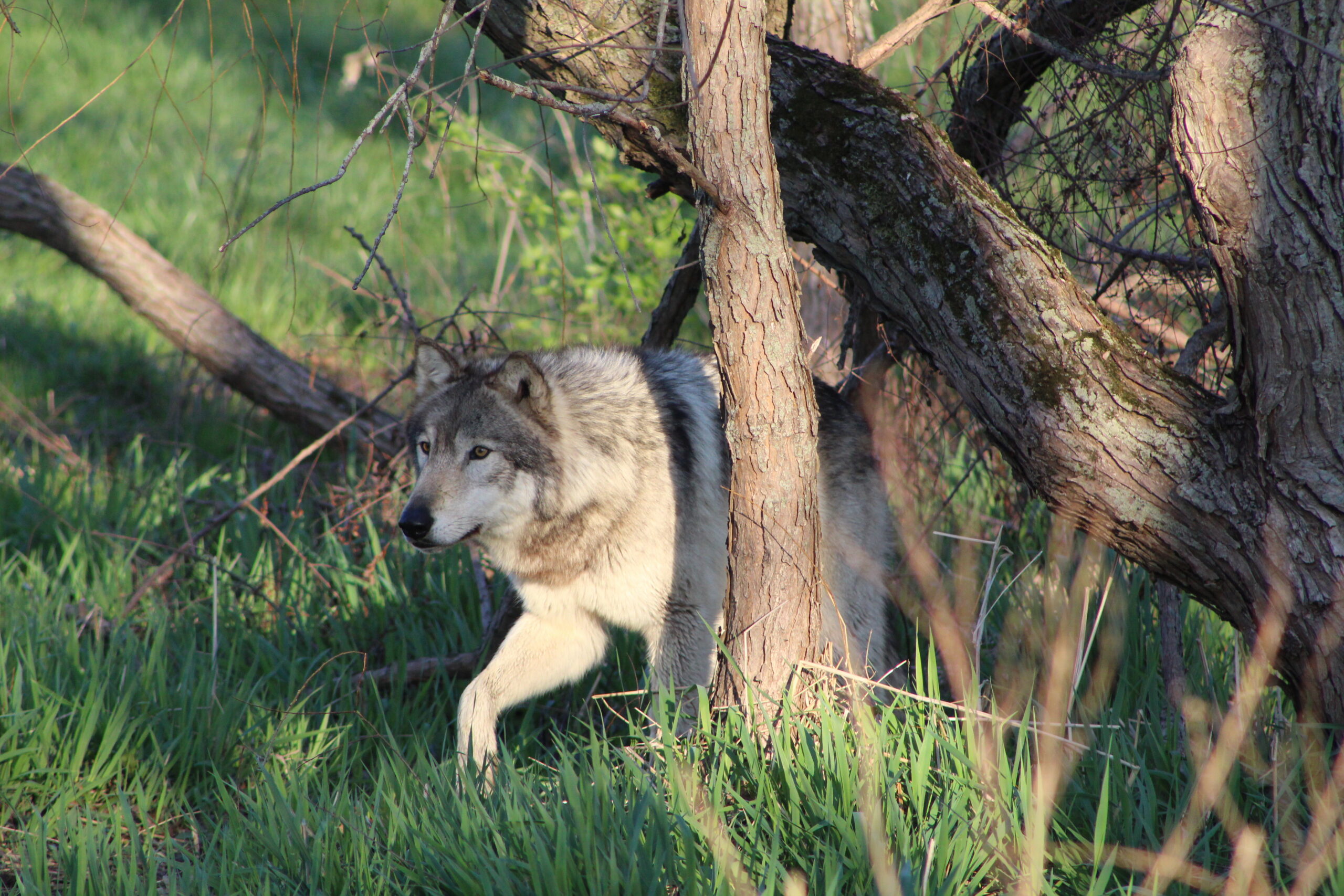QUALITIES AND VIRTUES WOLVES AND HUMANS SHARE
By Dr. Michael W. Fox
Forward by Camilla Fox:
Despite President Biden telling his grandchildren he was committed to protecting wolves during an interview with Coyote Peterson, wolves continue to be under assault across the nation.
Idaho recently released a draft wolf management plan which aims to reduce the state’s wolf population by 60%, primarily through incentivized trophy hunting and trapping. In March, Rep. Lauren Boebert (R-CO) introduced federal legislation into the House of Representatives with a bill ironically named “Trust the Science Act” with Rep. Tom Tiffany (R-WI) to permanently remove gray wolves from the endangered species list, bypassing any chance for judicial review.
Earlier this month, U.S. Sen. Tammy Baldwin (D-Wis.) introduced a bill (S.1788) co-sponsored by U.S. Sen. Amy Klobuchar (D-Minn.) that would force the removal of Great Lakes gray wolves from the Endangered Species Act without scientific or public support. You can read more about this ill-conceived legislation in an Op Ed published in the Chicago Sun Times and co-authored by Dr. Francisco J. Santiago-Ávila, Science & Conservation Manager for Project Coyote & The Rewilding Institute. We encourage you to take action to encourage your Senator to oppose S.1788.
Having grown up with a father who studied wolf / canid behavior and raised an orphaned wolf who was a beloved family member for 15 years, I know firsthand the fear- and awe- that wolves can evoke. I had the privilege of experiencing the love and fierce loyalty of a 100+ pound Timber Wolf for much of my childhood and came to understand the emotional depth and intelligence of this beautiful being.* I’m proud to share this piece from my father, Dr. Michael W. Fox, in remembrance of Tiny and all that she did to infuse in us a deep desire and commitment to protect her wild kin.
Enjoy! And please be sure to stay engaged with our Protect America’s Wolves campaign through social media.
For Canis lupus,
Camilla Fox
*Note: wolves do not make good pets. “Tiny” was orphaned when she was a small pup and my father, as a wild canid ethologist, adopted her (the alternative and fate of her siblings was death). As a well-known author, speaker, bioethicist and animal advocate, my father has always condemned having wolves – or any wild animals – as pets – as does Project Coyote. You can learn more about our Protect America’s Wolves campaign that advocates for wolves in the wild – fully protected under the Endangered Species Act.
QUALITIES AND VIRTUES WOLVES AND HUMANS SHARE
People in many states with wolves are debating the pros and cons of hunting and trapping, with some states seeking to remove federal protections of the wolf granted by the Endangered Species Act. I believe understanding the nature of wolves may help us reach a societal consensus of unquestioned respect and continued protection for the following reasons. They are based on various in-field reports and my own research of socialized wolves, their behavior, development and communication.
- They care for their young.
- They communicate cooperativity to survive.
- Offspring learn obedience and allegiance; they have devoted parents, older siblings, cousins, aunts and uncles who nurture and educate them to be courageous but cautious, taking no risks.
- Adults bring toys in the form of various objects for the pups to play with.
- Pups learn to decipher scents and interpret sounds, sights, tracks and terrain which they must know to survive.
- Family-pack members share food and defend their own.
- They groom each other, removing burrs in their fur and giving healing licks to wounds.
- They express their intentions and do not conceal emotions.
- They show patience, curiosity, insight and foresight.
- They care for their injured, provide food for their family, and find the lost.
- They are loyal and they mourn.
- They sing in a harmonious chorus and play together.
- They re-affirm and celebrate their social and emotional bonds when they reunite after time apart or howl across their domain.
- Like us they play and roll in fresh snow and chase snowflakes.
- They perfume themselves by rolling in fragrant organic materials they find on the trail.
- They kill to live, but not for sport.
- They have amicable relationships with other species, foxes and ravens, who clean up their kills.
- Wolf pups play with ravens flying over them with sticks, teasing them to jump and grab the sticks.
Photo by Michael W. Fox
These essential socio-biologically evolved qualities for survival we humans share with wolves, but we kill them for sport and after invading and developing their territories, we justify their eradication. Unlike us, wolves naturally control their numbers and provide environmental services that sustain biological diversity and ecological health. But like us they will war with and kill members of rival groups when food-resources and territory are limited. They know hunger and starvation; they suffer hypothermia when afflicted by sarcoptic mange that destroys their winter coats; and they get physical injuries from hunting large prey and suffer various infectious diseases often transmitted by free-roaming and feral dogs.
Our biological kinship, which parallels in convergent evolution with the wolf, reverberates with the spiritual kinship our wolf-derived domesticated dogs bestow on us as devoted companions and which we have yet to fully reciprocate. We thus need to honor the wolf in the process as an ancestral teacher of survival in our gatherer-hunter past that indigenous peoples around the world acknowledge today in myth and legend. As Loren Eiseley famously observed, “One does not meet oneself until one catches the reflection from an eye other than human.” Recognition of these similar attributes of wolves and humans is notable in several indigenous traditions, such as the Shinto of Japan. A good and a bad wolf is seen in human nature and acknowledged as being in every child and is embraced with understanding to ensure the good wolf is nurtured for the common good and the good of the Commons. This is also evident in Cherokee tradition in the story Beyond the Conflict of Inner Forces, which addresses how best to treat these two wolves in our own nature.
Photo by Christopher Lile: wolf emerging from the treeline
It is regrettable at this time that Secretary of the Interior Deb Haaland has failed to relist wolves under the ESA to protect them from the slaughter imposed by some western states such as Idaho and Montana.
After millennia of indifference, ignorance and neglect, in recovering our respect for wolves, we will recover those qualities and virtues of our humanity, inherent in the good wolf, as much on the verge of extinction in these times as are the wolves and other endangered species around the world.
Dr. Michael W. Fox is a world-renowned author, veterinarian, animal behaviorist and animal advocate. He holds advanced degrees in ethology and medicine, and has authored over 40 books, including “The Soul of the Wolf,” “Behavior of Wolves, Dogs and Related Canids” and the Christopher Award-winning children’s book, “The Wolf.” He has also written countless academic and popular articles for adults and children. His writing and work primarily focuses on the promotion of intersections between bioethics, animals and environmental protection. He is a tireless advocate for equal consideration and moral standing for nonhuman animals. Visit his website to learn more and to view his “Animal Doctor” syndicated column.



